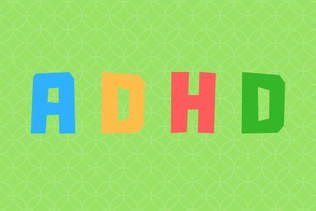
Initiate external scaffolding to make up for poor executive function skills. Most people with ADHD benefit from daily to-do lists, reminders, written routines, friends and helpers, timers, planners, calendars, and simplified filing systems. Experiment with one or more of these options to see if they are helpful.
Tune in to your strengths. Explore how you work best, when you work best, what systems worked for you in the past, and what motivates you. Monitor your energy level, ability to focus and preferred work environment for a few days. Take advantage of your findings to maximize productivity.
Customize your systems. Use brightly colored sticky notes for reminders. Buy unique bins that you will enjoy using. Be creative by using pictures or descriptive names on files rather than meaningless (to you) labels. Seek out aesthetically pleasing storage designs to keep your interest.
Break down a large project into smaller tasks. Use specific action words to describe tasks and include deadlines for each. Consolidate ideas on a project management spreadsheet. Seeing smaller, concise tasks makes a job feel less overwhelming.
Talk to yourself – really. Get into the habit of telling yourself what two things you will be doing next. When the first is accomplished, work on the next and create the third in your mind. In this way there is a running list in the brain that keeps you on track and free from distraction. Write these down if self talk doesn’t stick.
Practice time management. 1) Stick to a specific block of time by setting a timer and quit when it rings. If incomplete, immediately schedule another session for that task in a planner. Keep a small notebook handy to write down errant thoughts for later action. The goal is to stay on the current task until it is finished and to follow up later with the reminders in the notebook. 2) Practice planning by estimating how long a task will take and notice how long it really took. This will lead to more accurate planning in the future. 3) Get a grip on transitions. Observe the time it takes to transition between everyday activities. In the future you will know how to plan for transitions that affect important activities.
Delegate tasks that are difficult for you. There is no shame in asking someone else to do something that is beyond you. Admit it, ask, be happy and move on! There is nothing better than saying, “Oh I’m not good at that. I’d rather focus my time on what I’m good at.” Just be careful not to overextend your requests.
Simplify everything - that you do, have and store. Make a SIMPLIFY sign to hang by your desk. Truly, stop trying to do too much. Intentionally cut out extraneous activities. Declutter your spaces by getting rid of unused things. Establish simple storage like large open waste bins, open shelves, and hooks that require the least amount of effort to put things away.
Accept GOOD ENOUGH as opposed to perfection. Practice the strategy of GOOD ENOUGH with little things to see how you feel about doing something perhaps less than perfectly. It may feel very uncomfortable, but weigh this discomfort against the stress of overextending yourself.

 RSS Feed
RSS Feed
